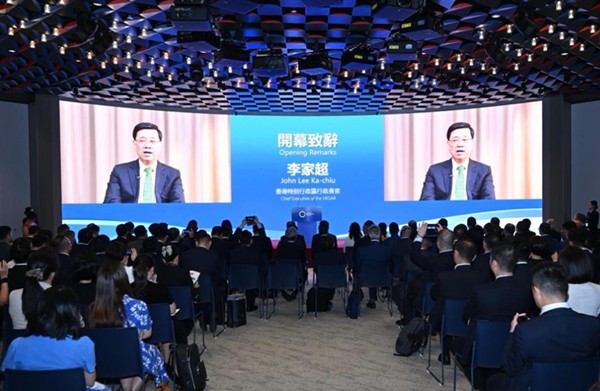Hong Kong presents maritime plans on shipping chamber's first anniversary


HKCoS marked Wednesday's first anniversary with the launch of the Maritime Law Talent Development Program and a strategic partnership with the Baltic and International Maritime Council (BIMCO), gathering more than 150 government officials and industry leaders to discuss Hong Kong's growing role as an international maritime center and the future of its shipping ecosystem.
As well as Leung, other notable attendees at Wednesday's event included Qi Bin, deputy director of the Liaison Office of the Central People's Government in the HKSAR; Li Yongsheng, deputy commissioner of China's Ministry of Foreign Affairs in the HKSAR; Mable Chan, HKSAR secretary for transport and logistics; and Hing Chao, chairman of the HKCoS.
HKCoS was officially established in Hong Kong on Oct 7 last year by Leung Chun-ying and Hing Chao, executive chairman of Wah Kwong Maritime Transport Ltd, with the aim of encompassing the entire maritime industrial chain and ecosystem.
At Wednesday's event, Mable Chan said the shipping and logistics industry has long been a vital pillar of Hong Kong's economy, and the government is pressing ahead with five key priorities.
The priorities are the strengthening of the maritime ecosystem by attracting bulk commodity traders and enhancing ship registration competitiveness; implementing the "Action Plan on Green Marine Fuel Bunkering" to develop Hong Kong into a center for green fuel bunkering and trading; facilitating connections between local and international stakeholders to expand global business opportunities; securing more cargo sources from the mainland while rolling out the Port Community System to accelerate digitization and smart development in shipping; and pursuing high-level planning and institutional innovation through the newly established Hong Kong Maritime and Port Development Board.
Hing Chao said the chamber will continue to focus on three strategic priorities — talent development, smart maritime services and the green energy transition.
It will expand cooperation with major mainland shipping hubs and continue to contribute to national development strategies, including the 14th Five-Year Plan (2021-25), the Guangdong-Hong Kong-Macao Greater Bay Area, and the Belt and Road Initiative (BRI), he said.




































